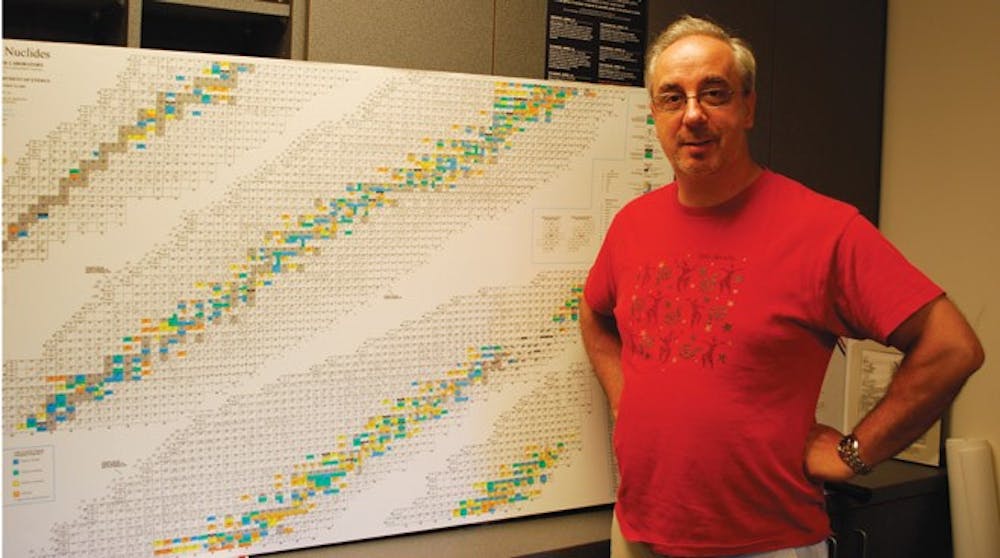Cornelius Beausang, associate professor and chairman of the University of Richmond physics department, received a $110,000 grant from the U.S. Department of Energy to study the unstable reactions that occur when stars and bombs explode.
"These types of reactions happen when weapons explode," Beausang said. "So if we can understand the physics of the explosion, then we don't have to [set off the weapons]. The reactions also happen when stars explode - the process that creates all the heavy elements. This stuff is also relevant to nuclear reactor designs of the future."
The grant, which works in conjunction with the Stewardship Science Academic Alliances (SSAA) program of the Department of Energy, is the first part of an expected three-year $510,000 grant that will have a significant impact on the way the world approaches the subject of nuclear weapons, stockpiles and reactors.
Beausang received the grant in part because of the nuclear stockpile stewardship. The stewardship's purpose is to look after and care for the U.S. nuclear stockpile. The Federation of American Scientists estimated in 2007 that there were approximately 9,900 warheads in the stockpile.
"The guys who look after the bombs have to make sure they work," Beausang said. "They have to send a letter every year saying, 'Dear Barack, if you push the red button, things will go boom.'"
Beausang's research involves studying unstable nuclei, using a surrogate reaction that substitutes stable nuclei and protons that will generate the same excited nuclei as the original, unstable reaction. Unstable nuclei have short half-lives, meaning they decay rapidly, which makes direct measurement of the excited nuclei nearly impossible.
The measurements taken from the stable compounds can then be used in the surrogate ratio technique, which he and his colleagues developed. The ratio allows them to compare the results from a surrogate reaction against those from a known reaction to study the excited unstable nuclei.
"Imagine you have a car," Beausang said, "Everything can come apart. You can check each piece separately and put it back together. You are never allowed to turn it on but it has to work."
This, he said, was what the nuclear stewardship was all about - the bombs have to work, even if they're never used. Beausang said he enjoyed this aspect of his research most.
"You can care for the nuclear [stockpile] and guarantee that they work without testing them," he said.
The research will involve at least another three years of categorizing the excited states of unstable nuclei and the new developments related to surrogate ratios. Students also help Beausang with his work, Tim Ross, 21, is receiving a collaborative Ph.D. from the University of Surrey that will allow him to participate in Beausang's experiments during the next three years. Ross completed a year of research as an undergraduate at the University of Richmond last year.
Ross, who started working on Beausang's new research during the past week, said he came back to the university as a graduate student to continue his work with Beausang and he said he was excited to keep it going.
Enjoy what you're reading?
Signup for our newsletter
Two or three undergraduate students and a post-doctorate student, Mitch Allen, who was unavailable for comment, are also expected to participate in the research during the next few months as well as in the summer.
Contact Staff writer Jordan Trippeer at jordan.trippeer@richmond.edu
Support independent student media
You can make a tax-deductible donation by clicking the button below, which takes you to our secure PayPal account. The page is set up to receive contributions in whatever amount you designate. We look forward to using the money we raise to further our mission of providing honest and accurate information to students, faculty, staff, alumni and others in the general public.
Donate Now



